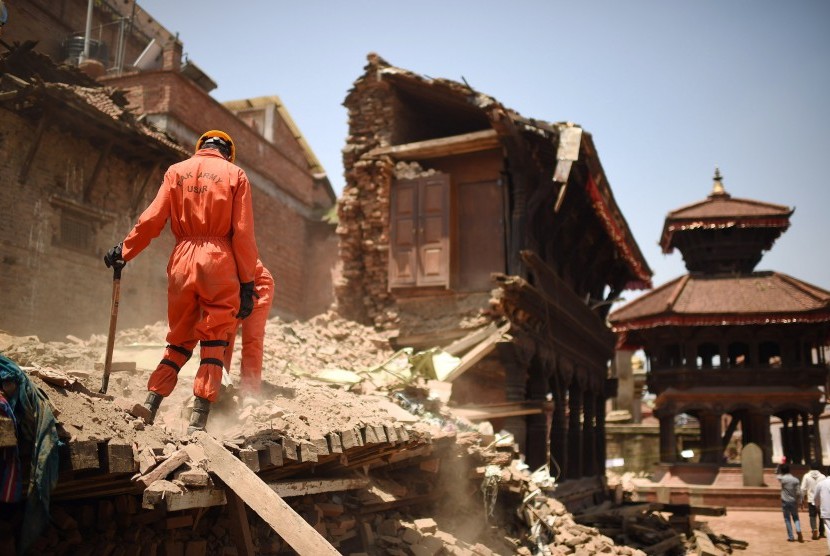REPUBLIKA.CO.ID, LONDON -- Farmers in earthquake-hit Nepal urgently need $20 million in emergency aid to plant crops in the summer and winter cropping seasons, protect their livestock and avert the threat of hunger facing a million people, the United Nations said on Friday.
In the six districts hit hardest by the earthquakes that struck Nepal on April 25 and May 12, half of all farming households lost most of their stored crops of rice, maize, wheat and millet, said the Food and Agriculture Organisation (FAO).
Farmers need seeds and fertiliser for the summer cropping season, while irrigation systems must be repaired to facilitate planting ahead of the winter season, the U.N. agency said.
The FAO said that only $3 million of the required $23.4 million for emergency agricultural aid - 13 percent - had been funded to date as part of the U.N. flash appeal for Nepal.
"Agriculture is a critical priority because two-thirds of Nepalis depend on farming for their livelihoods," said Nepal's FAO representative Somsak Pipoppinyo.
A million people in Nepal are at risk of hunger, and this number could grow if farmers do not receive support to rebuild their livelihoods and become more resilient, Pipoppinyo said.
The two earthquakes killed some 8,800 people and injured 22,000 others in the impoverished Himalayan nation.
Many earthquake survivors are still living under corrugated iron shelters, tarpaulins or even plastic tunnels normally used for growing vegetables and are vulnerable to mudslides, while many of their animals have no shelter, according to the FAO.
The earthquakes killed 16 percent of cattle and 36 percent of poultry in the six worst-affected districts, and the remaining livestock urgently require shelter, feed water, medicine and vaccinations, the U.N. agency said.
Some 40,000 bags of rice seeds have been sent to farmers in the six hardest-hit districts to plant before the monsoon season, which runs from June to September, the FAO said.
The FAO also said it was considering ways to increase the resilience of Nepal's most vulnerable farmers to future crises, such as installing cages full of stones to fix unstable soil, mapping major earthquake cracks, and establishing early warning systems to advise farmers of emerging landslide risks.


